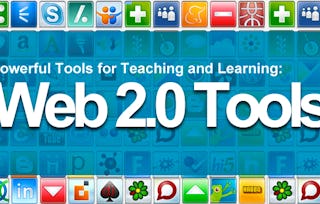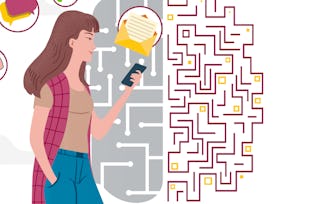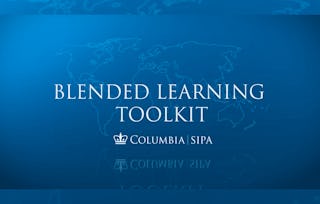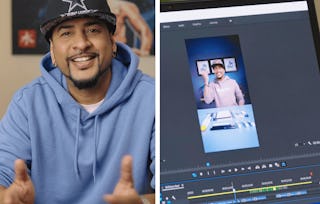Powerful Tools for Teaching and Learning: Digital Storytelling introduces educators to digital storytelling and explores ways to use digital stories to enhance students’ learning experiences. The course is designed to be comprehensive yet fundamental. By comprehensive we mean that the course provides a solid foundation for all of the components of a digital story and illustrates these components with tutorials, example stories, and links to additional readings. The course also provides a hands-on opportunity for learners to create their own digital stories. The course is fundamental because it covers the basic process of creating a digital story starting with just a simple script and as little as one image.

Powerful Tools for Teaching and Learning: Digital Storytelling
Seize the savings! Get 40% off 3 months of Coursera Plus and full access to thousands of courses.

Powerful Tools for Teaching and Learning: Digital Storytelling


Instructors: Bernard R Robin
70,277 already enrolled
Included with
244 reviews
Details to know

Add to your LinkedIn profile
See how employees at top companies are mastering in-demand skills

There are 5 modules in this course
Instructors


Offered by
Explore more from Education
 Status: Preview
Status: PreviewUniversity of Houston
 Status: Free Trial
Status: Free TrialArizona State University
 Status: Preview
Status: PreviewColumbia University
 Status: Free Trial
Status: Free Trial
Why people choose Coursera for their career

Felipe M.

Jennifer J.

Larry W.

Chaitanya A.
Learner reviews
- 5 stars
71.72%
- 4 stars
18.44%
- 3 stars
3.68%
- 2 stars
2.04%
- 1 star
4.09%
Showing 3 of 244
Reviewed on Oct 21, 2018
Strongly recommended for teachers/trainers who want to learn how to write a digital story for their learners.
Reviewed on Jun 23, 2019
I've completed my course. It was not easy task. The system was very powerful with alot of guidelines. Materials are deep enough to make a learnersatisfied. Thank you for certificate
Reviewed on Mar 16, 2017
Great. I am happy to completed Blended learning course. Amazing experience and learned lot more . :)

Open new doors with Coursera Plus
Unlimited access to 10,000+ world-class courses, hands-on projects, and job-ready certificate programs - all included in your subscription
Advance your career with an online degree
Earn a degree from world-class universities - 100% online
Join over 3,400 global companies that choose Coursera for Business
Upskill your employees to excel in the digital economy
¹ Some assignments in this course are AI-graded. For these assignments, your data will be used in accordance with Coursera's Privacy Notice.

